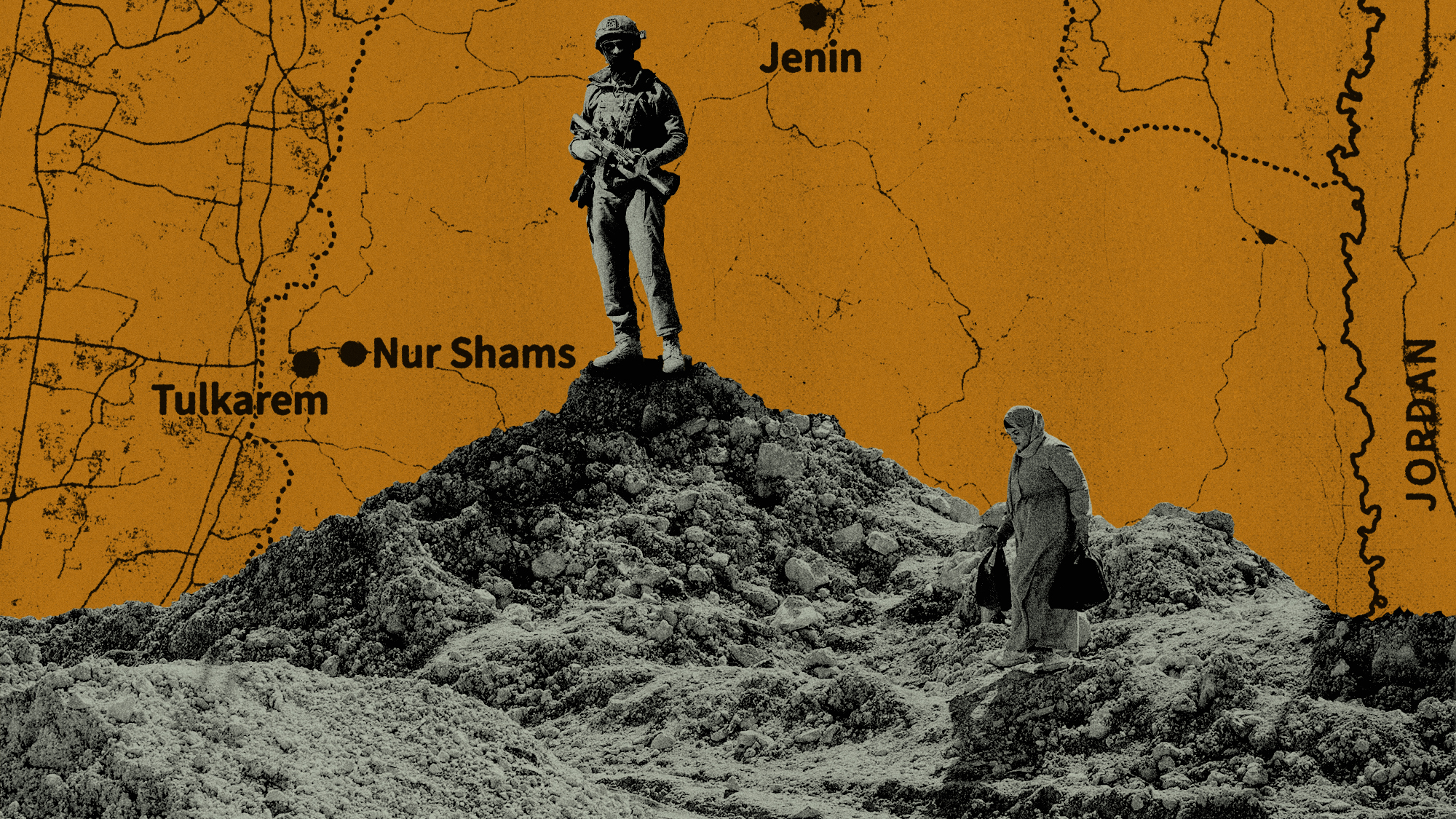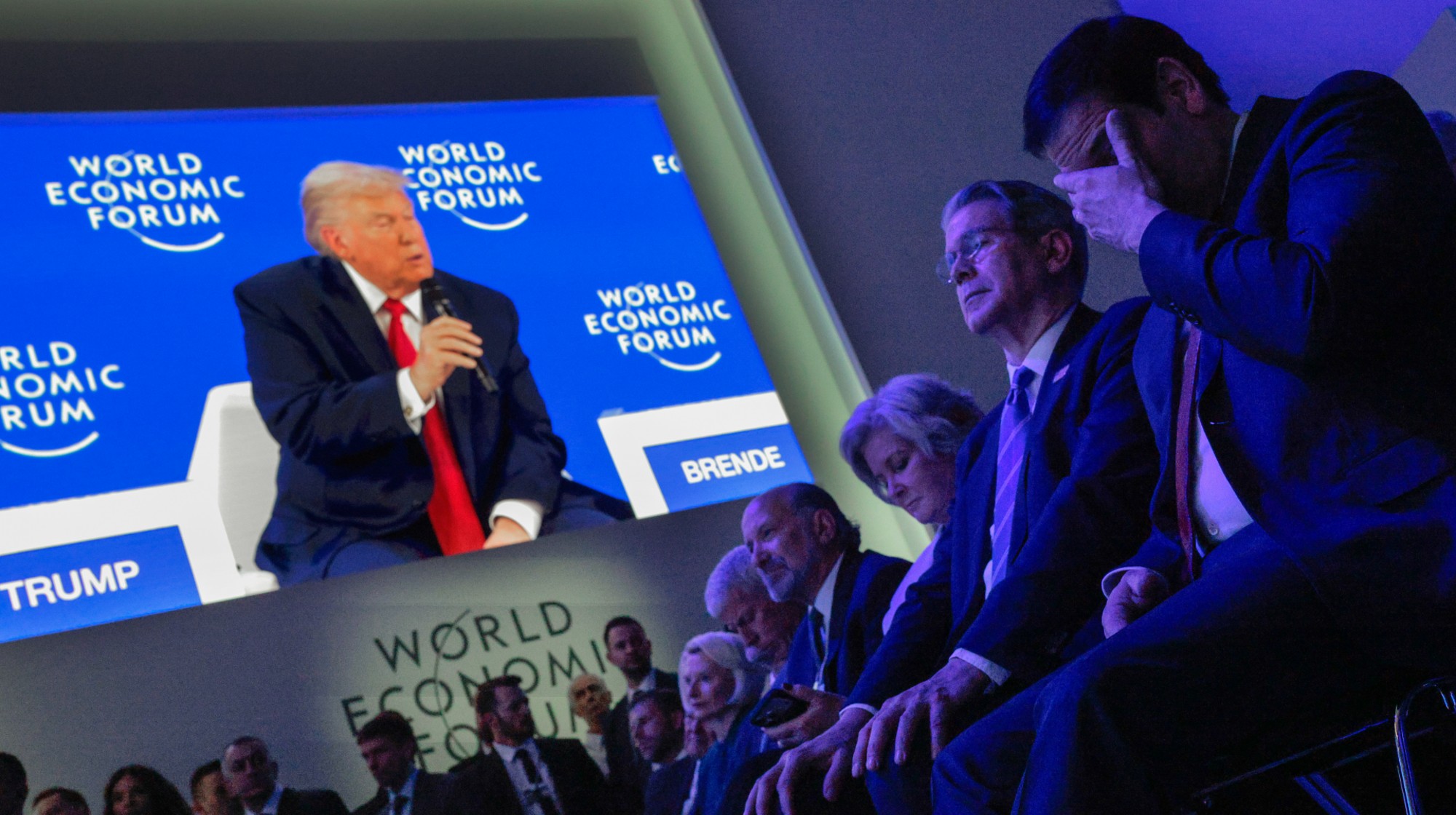Why is Netanyahu pushing into the West Bank now?
Israeli tanks have entered some Palestinian cities for the first time in decades. What's behind this latest assault on the occupied territory, and where could it lead if left unchecked?


A free daily email with the biggest news stories of the day – and the best features from TheWeek.com
You are now subscribed
Your newsletter sign-up was successful
Residents of the West Bank city of Jenin have witnessed something unseen in their community in more than 20 years: Israeli tanks, which rolled into the Palestinian enclave on Sunday as part of Prime Minister Benjamin Netanyahu's Operation Iron Wall. Described by Israel as an offensive action against local terror cells, Operation Iron Wall has led to hundreds of Palestinians killed or arrested and left tens of thousands of civilians displaced. It has raised fears of a similar level of widespread violence and destruction as was inflicted upon the Gaza Strip during the war between Israeli forces and Hamas militants. This campaign began just days after Israel's Gaza operation officially concluded, prompting further speculation over the conspicuous timing of (and underlying intent behind) Netanyahu's latest West Bank actions.
With Israeli troops on the ground and the Palestinian death toll rising, Netanyahu has chosen a notable moment for a large-scale incursion into the West Bank. With most focus on the extraordinarily fragile ceasefire taking place in Gaza, what does Israel hope to accomplish with this latest initiative?
What did the commentators say?
While Israel has long carried out discrete incursions into the territory, the country claims this "even more aggressive military operation" is "necessary to root out Iranian-backed militants who threaten its security," CNN said. To do that, Israel's defense minister has said, it is "applying its Gaza playbook to the West Bank." Palestinians, however, describe those tactical goals as merely a "political agenda disguised and wrapped in a military and security operation," Jenin Mayor Mohammad Jarrar said to the network. "We all know the goals of this far-right government policy."
The Week
Escape your echo chamber. Get the facts behind the news, plus analysis from multiple perspectives.

Sign up for The Week's Free Newsletters
From our morning news briefing to a weekly Good News Newsletter, get the best of The Week delivered directly to your inbox.
From our morning news briefing to a weekly Good News Newsletter, get the best of The Week delivered directly to your inbox.
Already "around 40,000 people" have been displaced from communities in the northern part of the West Bank in what has been described as the "largest forced displacement of Palestinians" in the territory since 1967, said the BBC. Israel appears to be "laying the groundwork" for a "prolonged military presence" in and around Jenin, said The New York Times. Palestinian officials have claimed the operation sets the stage for a "new generation of displacement" and a return to "military control" in parts of the West Bank; these parts had, for the decades following the 1993 Oslo Peace accords, been largely governed by the Palestinian Authority.
To many observers, Israel's calculus seems "political rather than security-driven," said Al Jazeera, designed to "appease far-right Israeli politicians" angry over the ceasefire agreement between Israel and Hamas in Gaza. As "violence has soared in the West Bank" since Hamas launched its attack on Oct. 7, 2023, "so too have calls from far-right Israeli politicians for the annexation of the territory," CBS News said.
What next?
Looming over all this is the new administration of President Donald Trump, who has hinted at potentially endorsing Israel's annexation of the contested territory in the coming weeks. Israeli hardliners have been "heartened by the large number of strongly pro-Israel figures in the new U.S. administration" including Trump himself, Reuters said. In particular, Trump's calls for the mass relocation of Palestinians out of Gaza has "emboldened Israel's far right to renew calls for annexation of the West Bank," said The Times of Israel.
"People do like the idea" of annexation, Trump said earlier this month. "But we haven't taken a position on it yet." While the world waits for this administration's decision, the facts on the ground may outpace any forthcoming announcement from the White House. Israeli troops have been instructed to "prepare for an extended presence in the cleared camps for the next year," said Defense Minister Israel Katz. They have also been ordered "not to allow the return of residents and the resurgence of terror."
A free daily email with the biggest news stories of the day – and the best features from TheWeek.com
Rafi Schwartz has worked as a politics writer at The Week since 2022, where he covers elections, Congress and the White House. He was previously a contributing writer with Mic focusing largely on politics, a senior writer with Splinter News, a staff writer for Fusion's news lab, and the managing editor of Heeb Magazine, a Jewish life and culture publication. Rafi's work has appeared in Rolling Stone, GOOD and The Forward, among others.
-
 Health insurance: Premiums soar as ACA subsidies end
Health insurance: Premiums soar as ACA subsidies endFeature 1.4 million people have dropped coverage
-
 Anthropic: AI triggers the ‘SaaSpocalypse’
Anthropic: AI triggers the ‘SaaSpocalypse’Feature A grim reaper for software services?
-
 NIH director Bhattacharya tapped as acting CDC head
NIH director Bhattacharya tapped as acting CDC headSpeed Read Jay Bhattacharya, a critic of the CDC’s Covid-19 response, will now lead the Centers for Disease Control and Prevention
-
 Will increasing tensions with Iran boil over into war?
Will increasing tensions with Iran boil over into war?Today’s Big Question President Donald Trump has recently been threatening the country
-
 Corruption: The spy sheikh and the president
Corruption: The spy sheikh and the presidentFeature Trump is at the center of another scandal
-
 Rubio boosts Orbán ahead of Hungary election
Rubio boosts Orbán ahead of Hungary electionSpeed Read Far-right nationalist Prime Minister Viktor Orbán is facing a tough re-election fight after many years in power
-
 Greenland’s capital becomes ground zero for the country’s diplomatic straits
Greenland’s capital becomes ground zero for the country’s diplomatic straitsIN THE SPOTLIGHT A flurry of new consular activity in Nuuk shows how important Greenland has become to Europeans’ anxiety about American imperialism
-
 Which way will Trump go on Iran?
Which way will Trump go on Iran?Today’s Big Question Diplomatic talks set to be held in Turkey on Friday, but failure to reach an agreement could have ‘terrible’ global ramifications
-
 Israel retrieves final hostage’s body from Gaza
Israel retrieves final hostage’s body from GazaSpeed Read The 24-year-old police officer was killed during the initial Hamas attack
-
 Ukraine, US and Russia: do rare trilateral talks mean peace is possible?
Ukraine, US and Russia: do rare trilateral talks mean peace is possible?Rush to meet signals potential agreement but scepticism of Russian motives remain
-
 Trump backs off Greenland threats, declares ‘deal’
Trump backs off Greenland threats, declares ‘deal’Speed Read Trump and NATO have ‘formed the framework for a future deal,’ the president claimed
